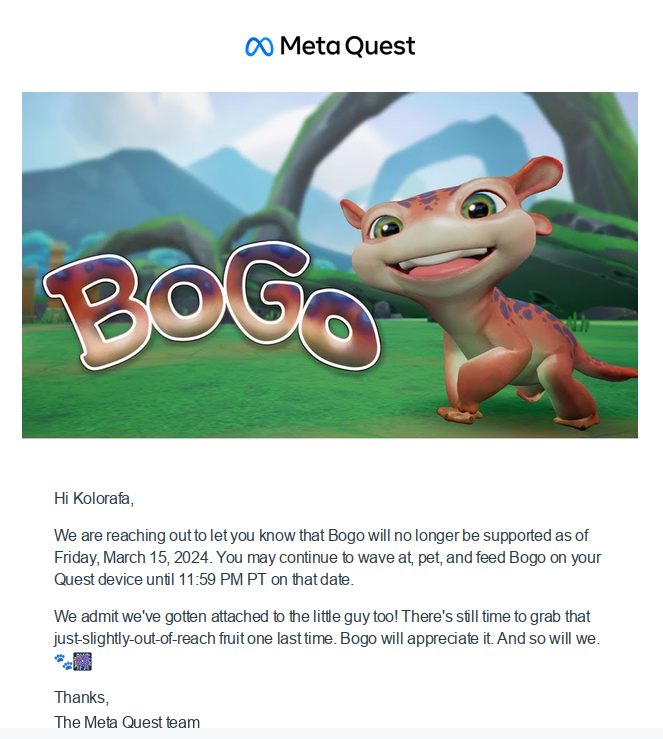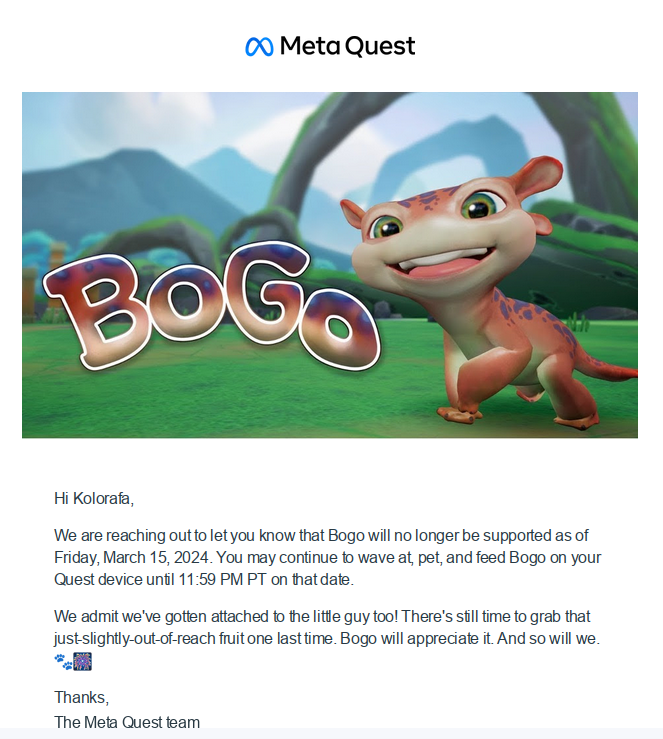this post was submitted on 17 Sep 2023
663 points (92.2% liked)
Games
33095 readers
2012 users here now

Welcome to the largest gaming community on Lemmy! Discussion for all kinds of games. Video games, tabletop games, card games etc.
Weekly Threads:
Rules:
-
Submissions have to be related to games
-
No bigotry or harassment, be civil
-
No excessive self-promotion
-
Stay on-topic; no memes, funny videos, giveaways, reposts, or low-effort posts
-
Mark Spoilers and NSFW
-
No linking to piracy
More information about the community rules can be found here.
founded 2 years ago
MODERATORS
you are viewing a single comment's thread
view the rest of the comments
view the rest of the comments


Edit2: Jesus people, please engage with the actual argument... not some strawman argument I didn't make.
I must be missing something here.
Edit: I do think that abandonware should be opensourced at some point... but I don't understand this level of entitlement.
Maybe I'm just missing some crucial info, but an amusement park seems like a fundamentally different thing than software.
It's the designs and schematics part that makes them equivalent.
It still doesn't seem entirely equivalent to me. We're not talking about them giving out the source code. We're talking about how shit it is that something like software already installed on your computer just no longer will work.
Or let's use your analogy; why not just abandon the facility instead of shutting it down and chasing everyone away?
Like, don't get me wrong. I understand that this is the nature about always online stuff and that it can always be closed down like a theme park, but I feel the conversation is more about "why did they design this like a theme park without an abandonment clause instead of a shut-down clause. Historically, most other theme parks have been fine with being abandoned"
And I mean, I'll agree with you that it's nothing new, we saw it with Overwatch 1 and countless others, but I feel it's a conversation one should be able to have without it being dismissed?
(I may have read too much into your comment, but it felt like it was dismissing it as a non-issue since theme parks work like this, when this is not a theme park)
Just in case you missed it in the op:
After reading the rest of your comment, you are reading the wrong thing from it, the physical parts of the amusement park would be the extant binaries you already have. They still run the same as they did before, but without maintenance they will deteriorate and become non-functional or only partially operational. In an online system there are server bits that might not be available to the end user and those pieces also need an operator.
To make a slightly more specific analogy, with a water park we could imagine a separate water treatment facility that would need to be run to keep the water in the water park safe. That treatment facility could also have plans and schematics.
The actual facilities in these cases are not independently valuable in the software case. It's the plans and schematics (the source code) that has value... but in both cases you only need the facilities and operators/maintenance to allow people to attend the water park/play the game.
Could the game company also give away a physical treatment plants so that an independent organization could buy their own servers and run their own game servers so that they could still play in their own private water parks? Sure.
Should they? Maybe. But it's specifically the entitlement to the plans/schematics that gets me...
I understand the point now. Thank you! Good explanation!
You can't compare a one time ticket to an amusment park to a purchased product tho, that's just a bad analogy...
I didn't.
Good analogy. The battle shouldn't be about forcing abandonware to be opensource. We should focus on DRM, it makes games almost impossible to play when servers shut down.
OP should have compared it to other medias such as movies. When you buy a box copy, you expect it to work long after the authors/studios/etc. are gone.
The issue is about the lack of legal ways to play older games as time moves on. It will only grow bigger in the next few years with even more games relying on DRM and online servers.
This is a good distinction.
Online only play models are difficult for the consumer. I personally don't play that many online only games for partly this reason... and partly because I don't play many online games at all.
It's not a good analogy. Buying a one time use ticket to an amusement park is a very different thing than purchasing a game.
A better analogy would be buying a season pass to an amusement park, which then abruptly shuts down 3 months later.
That's not the analogy I gave.
That's my point, your analogy was a bad one so I made a new one.
No. I didn't make the analogy you claimed I did. You strawman'd my argument and made one you like.
Well then, whatever argument you're making, which I note you refuse to elaborate on, you're missing the point.
Why would I need to elaborate on an argument I didn't make? I don't understand? I made my argument, if you don't understand it, I don't know what you don't understand?
What are you misunderstanding?
It doesn't matter. Whatever argument you're making, you're missing the point of the OP.
Because the analogy I drew was in line with the OP. And you said you were making a totally different argument. So whatever argument you're making is irrelevant.
What?
My argument directly engaged with the original post that game developers should be forced to open source their software. The analogy you made has nothing to do with open source software, it has to do with payment models...
Edit: and ops position doesn't make any claims about payment models...
The underlying analogy was totally wrong though because it misses the point of why people are so angry about it. The payment model is integral to understanding the entire point of the discussion.
What?
You are even more wrong.
Bogo is a free game. What is wrong with you?
There are two kinds of people in this world
Those who are able to extrapolate from incomplete data
Ah, so you are a troll who has no intention of engaging in an honest conversation. Got it.